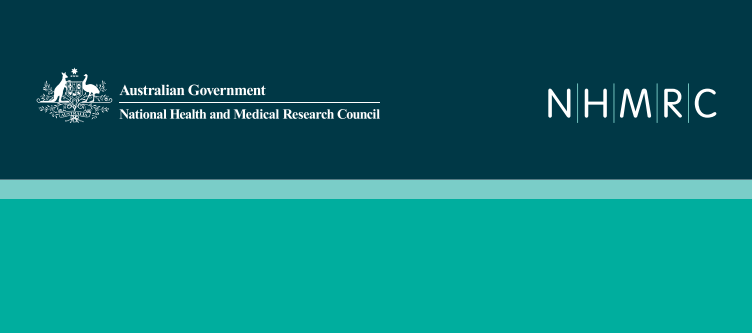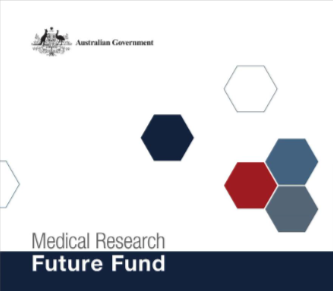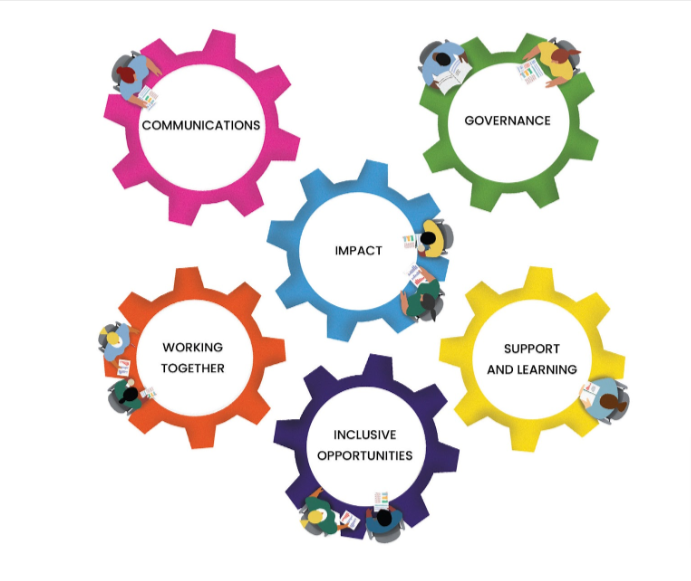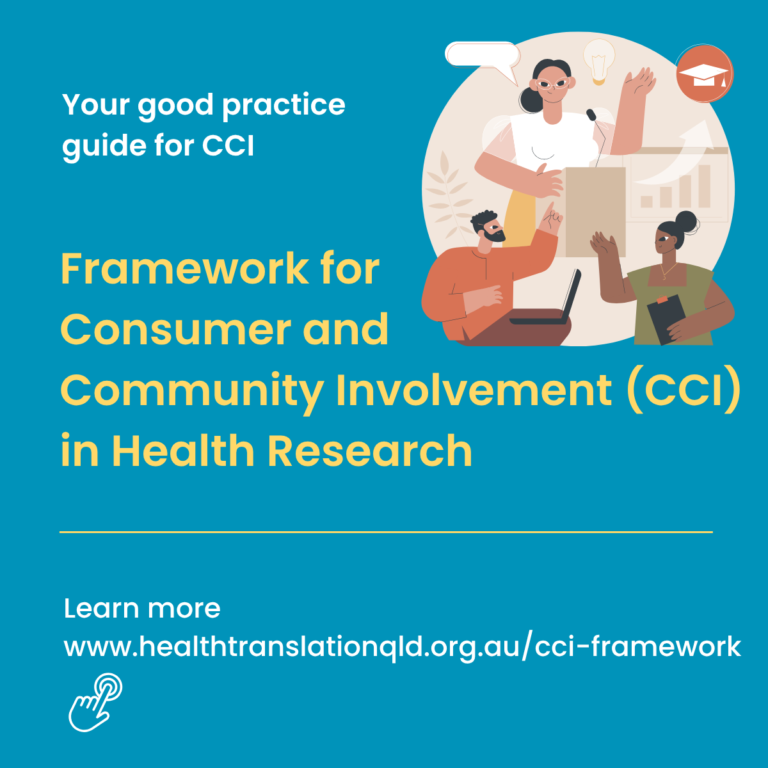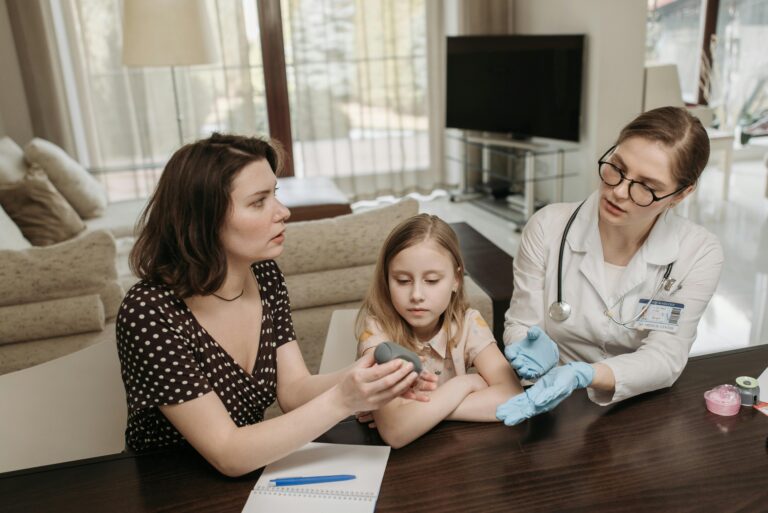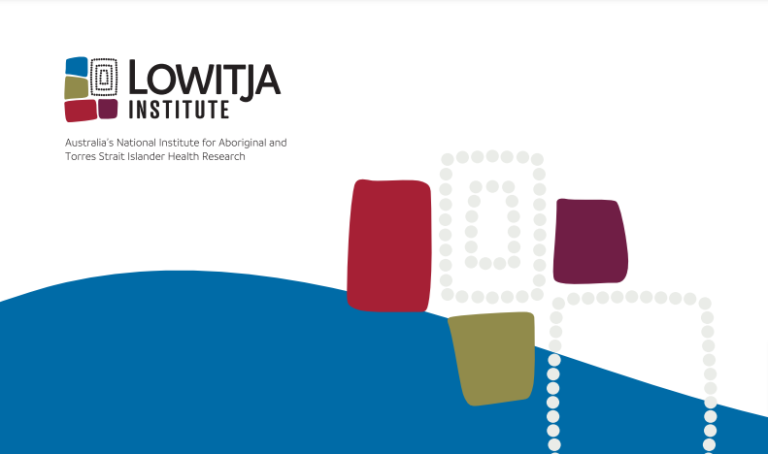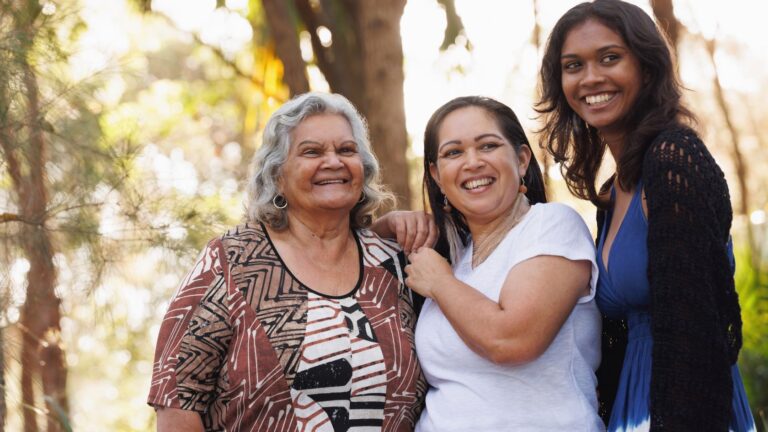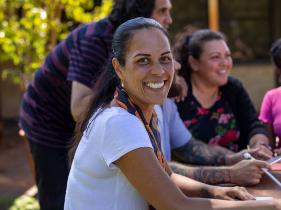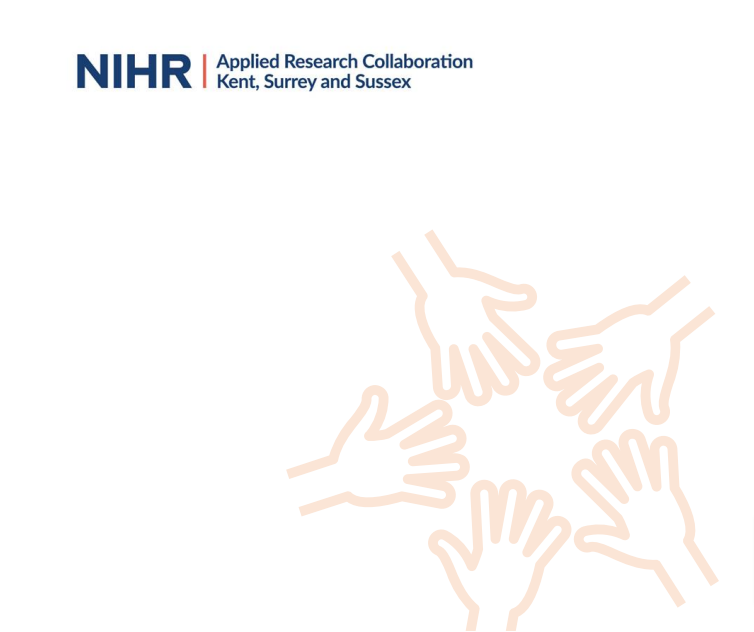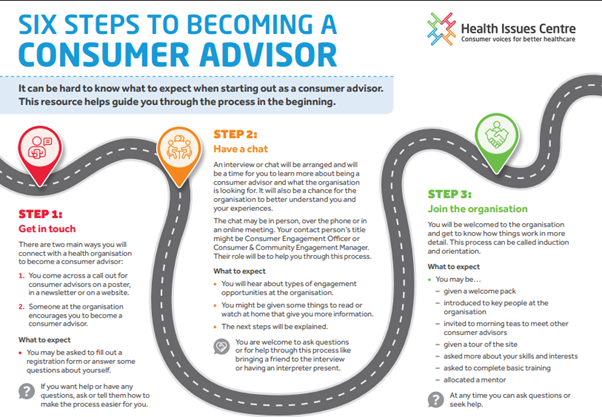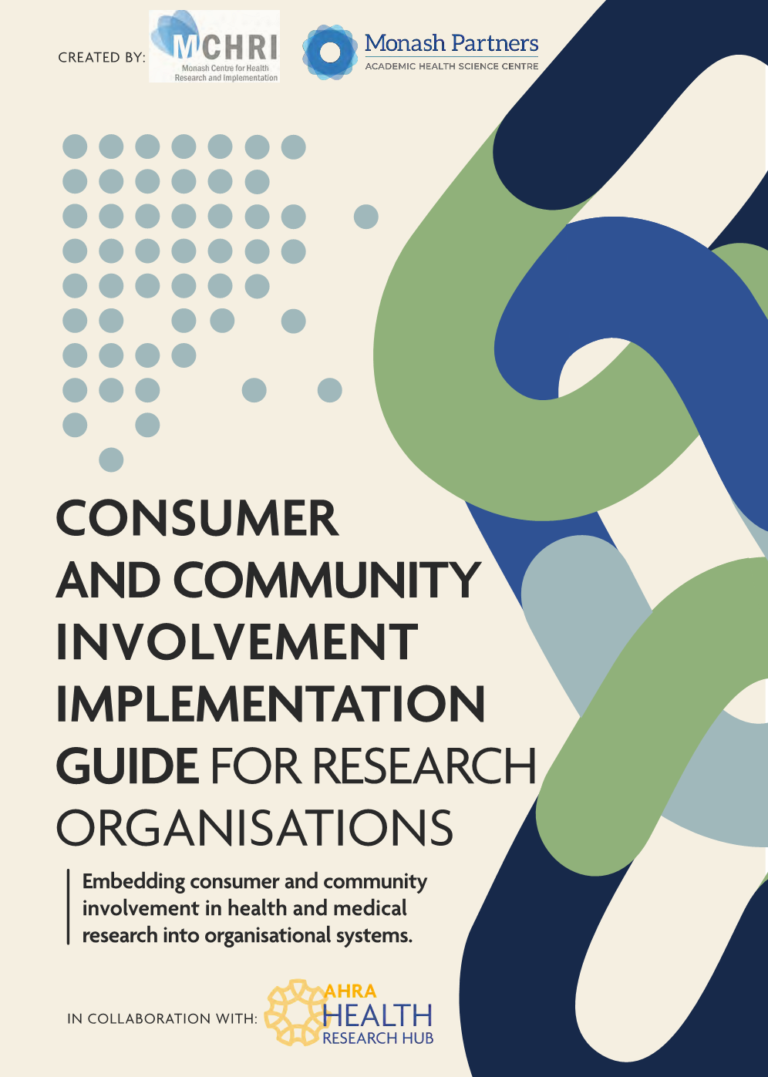Key Resources
Here are some key Australian and international resources for consumer and community involvement. This list has been curated to ensure resources are of high quality, evidence-based and reflect best practice principles of consumer and community involvement. We are constantly coming across great resources and will continue to update this list regularly. If you know of a great resource that has not been listed here or a broken link, please let us know.
Foundations of Consumer and Community Involvement
The Statement aims to guide research institutions, researchers, consumers and community members in the active involvement of consumers and community members in all aspects of health and medical research. It is under review in 2025. Appendix 3 of the Statement, ‘the research cycle’, helps researchers plan and implement meaningful consumer and community involvement across all […]
Advice on best practice consumer involvement in MRFF-funded health and medical research including principles for consumer involvement and implementation advice.
The Strategy is an implementation resource to strengthen partnerships between health policy makers and the community.
The standards provide a flexible framework for effective public involvement in research, promoting reflection, learning from both successes and failures, and supporting continuous improvement across diverse methods and contexts.
The Framework deepens understanding of trauma and its related concepts, offering guiding principles and outlining key domains to support trauma-informed approaches in everyday work.
Frameworks for Consumer and Community Involvement
The IAP2 Spectrum of Public Participation is a widely used framework developed by the International Association for Public Participation (IAP2). The spectrum outlines five levels of participation, each reflecting increasing degrees of public influence on decision making.
The VCCC Alliance Model of Consumer Engagement draws upon the consumer involvement capability model of Cancer Australia and outlines five levels of consumer participation.
The Statement aims to guide research institutions, researchers, consumers and community members in the active involvement of consumers and community members in all aspects of health and medical research. It is under review in 2025. Appendix 3 of the Statement, ‘the research cycle’, helps researchers plan and implement meaningful consumer and community involvement across all […]
The National Health and Medical Research Council framework breaks down the research process to highlight how consumers can be meaningfully involved at every stage of the project lifecycle.
The NHMRC and CHF Statement of Consumer and Community Involvement in Health and Medical Research suggests different ways that researchers are able to involve consumers in their projects throughout the process.
The Framework for Consumer and Community Involvement, developed by Health Translation Queensland, guides researchers to meaningfully involve consumers throughout the research cycle. Developed through co-design, it outlines flexible principles, roles and tools to support genuine partnership. Its aim is to improve research quality, relevance and impact, and it is freely available for broad use and […]
The Australian Clinical Trials Alliance website provides advice and tools to assist researchers and research organisations to effectively evaluate consumer involvement.
This report outlines work to identify how to effectively measure the impact of consumer and community involvement in health research. Specifically, the team investigated whether any frameworks or models already existed for measuring CCI impact that could be used more broadly.
Prof Diana Egerton-Warburton shares her experience, key learnings and helpful resources that supported her in establishing a consumer advisory panel for her research.
Consumers can play a valuable role in project or steering committees by offering insights from a lived experience perspective. Their involvement may occur at various levels, including government, professional bodies, organisational boards or sub-committees, and research/healthcare improvement projects. All committees should have a Terms of Reference (ToR) that clearly outlines: the committee’s purpose, structure, and […]
A consumer advisory panel is a high-level group made up of consumers and or community representatives. Established by health, research or healthcare organisations, consumer advisory panels can provide consumer perspectives on relevant issues across a range of research projects, provide input into the design of research and grant proposals, review policies, advocate for people with […]
Consensus building is a collaborative, democratic process where consumers—alongside clinicians, researchers, and other stakeholders—work together to reach shared agreement on key issues. It involves structured, participatory approaches that encourage open dialogue and respect for diverse perspectives, especially those with lived experience.These methods help balance priorities across all participants and guide decision-making in a transparent and […]
Consultation is a structured approach used to gather insights, feedback, or advice from consumers and stakeholders on specific activities—such as research projects, healthcare improvements, policies, strategies, or priority areas.Consultations may be: Consultation can take many forms, depending on the goals and audience. Common approaches include: These methods help ensure that diverse voices are heard and […]
Consumer advocacy is an approach where individuals with lived experience work to champion the rights, needs and priorities of the broader patient and carer community across healthcare, research and policy development. By doing so, consumer advocates can ensure that the lived experience perspective is embedded in decisions being made. Consumer advocates take on roles like […]
A co-researcher approach involves people with lived experience working as equal members of a research team, actively contributing to all stages of the project alongside academic researchers. This model embeds consumers in the research process, recognising their unique insights and expertise. To support meaningful involvement, consumer co-researchers may receive training and capacity-building to develop skills […]
Consumer partnership is a collaborative approach where researchers, healthcare providers, and consumer organisations work together in a meaningful and active way to design and conduct research or healthcare improvement projects. These partnerships often involve broad collaboration between research teams and consumer organisations or groups, with one or more consumer partners helping to guide the direction […]
Consumers can be formally employed through contracts to contribute their lived experience expertise to research, healthcare improvement, or policy development.Examples of Consumer Roles:
Bridging Science and Community: The Power of Consumer and Community Involvement in Basic Science Research In November 2024, the Western Australia Health Translation Network (WAHTN) CCIProgram hosted a forum to explore the integration of consumer and community involvement in basic science research across Western Australia. The event featured researcher-consumer teams co-presenting on the consumer and […]
Conducting research with Aboriginal and Torres Strait Islander communities requires a respectful, ethical, and culturally sensitive approach. This case study provides comprehensive guidance on how to engage with communities effectively, ensuring that research practices honour their unique cultural heritage and lived experiences. Written Resources Steps for Involving Aboriginal and Torres Strait Islander Communities – prepared […]
The Australian and New Zealand Intensive Care Research Centre (ANZIC-RC), based at Monash University, leads large-scale clinical trials and research to improve outcomes in intensive care. In 2022, with the support of the Centre for Research Excellence to Transform Outcomes of Critically Ill Patients in Intensive Care and the ANZIC-RC Board, the ANZIC-RC Consumer and Community Connection Committee […]
Inclusive Engagement
The NHMRC’s Ethical Conduct in Research with Aboriginal and Torres Strait Islander Peoples and Communities (2018) provides a framework of principles that ensure research involving Aboriginal and Torres Strait Islander peoples is: safe, respectful, responsible, high quality and of benefit to the communities involved. These guidelines are designed to support researchers and stakeholders in conducting […]
The purpose of the AIATSIS Code of Ethics for Aboriginal and Torres Strait Islander Research is to promote ethical, responsible, and culturally respectful research practices that uphold the rights and interests of Aboriginal and Torres Strait Islander peoples.
This discussion paper builds on findings from the Murru Minya study, a national investigation into how ethical processes are implemented in Aboriginal and Torres Strait Islander health research. It provides a comprehensive overview of the principles and governance frameworks that support culturally safe, respectful, and ethical research practices.
The Lowitja Institute’s 2020 discussion paper, Aboriginal Participatory Action Research: An Indigenous Research Methodology Strengthening Decolonisation and Social and Emotional Wellbeing, defines and promotes Aboriginal Participatory Action Research (APAR) as a transformative Indigenous research methodology.
If you are looking at co-design with Aboriginal and Torres Strait Islander people and communities, this website provides tips and resources around best practice for successful engagement.
The NSW Government, Agency for Clinical Innovation, Co-design Toolkit: Working Together with Aboriginal Communities is designed to support respectful, culturally grounded collaboration with Aboriginal communities in service design and improvement. The toolkit emphasises the importance of bringing Aboriginal perspectives—ways of being, knowing, and doing—to the forefront of the co-design process. It draws on the 8 […]
Conducting research with Aboriginal and Torres Strait Islander communities requires a respectful, ethical, and culturally sensitive approach. This case study provides comprehensive guidance on how to engage with communities effectively, ensuring that research practices honour their unique cultural heritage and lived experiences. Written Resources Steps for Involving Aboriginal and Torres Strait Islander Communities – prepared […]
This framework lists a range of strategies that enable current or potential consumers to participate in service planning and decision making. Additional considerations for Culturally and Linguistically Diverse communities are included.
Practical strategies to seek and support diverse engagement and participation, as well as tips for success.
Practical Implementation
If you are looking at co-design with Aboriginal and Torres Strait Islander people and communities, this website provides tips and resources around best practice for successful engagement.
The NSW Government, Agency for Clinical Innovation, Co-design Toolkit: Working Together with Aboriginal Communities is designed to support respectful, culturally grounded collaboration with Aboriginal communities in service design and improvement. The toolkit emphasises the importance of bringing Aboriginal perspectives—ways of being, knowing, and doing—to the forefront of the co-design process. It draws on the 8 […]
A practical guide to co-production and its application in research and health service settings, aiming to make public partnerships more diverse, inclusive, and impactful.
Developed for researchers, consumers and health professionals, this document provides a map of practical resources to support the process of co-producing research in health and social care. It includes a selection of resources, toolkits and guidance documents.
Provides practical resources, processes, and principles to help consumers and health staff use co-design practices to improve health services.
An inclusive, practical resource designed to help researchers, consumers, carers, and healthcare workers collaborate effectively across all stages of health and medical research. It promotes co-design and co-delivery by offering tools, templates, and guidance based on five key principles—shared decision-making, valuing all knowledge, relationship-building, recognition, and flexibility.
This framework is a practical resource for anyone involved in co-design, including staff, consumers, community members and researchers. It supports local quality improvements through to service re-design and large research projects.
The Double Diamond framework is a design process model that divides problem-solving into four phases: Discover, Define, Develop, and Deliver. It helps teams explore the problem thoroughly before narrowing down to the best solution through iterative design and testing.
Guidelines for remuneration and reimbursement of consumers across different levels of involvement in health and medical research with good practice examples.
General guidelines for payment, reimbursement and recognition of consumers across different levels of involvement and examples of what those activities may look like. These guidelines provide general advice taking into account the range of contextual factors that need to be considered for each project or activity. Please note, some funders or organisations may have their […]
The key considerations when preparing a budget and a cost calculator.
Key considerations and good practice when reimbursing consumers involved in health research.
The Honorarium Guidelines ensure that lived-experience contributions from consumers, carers, families and community members are recognised through fair, culturally respectful payments. They cover who is eligible, address tax and Centrelink concerns, specify activities and payment levels – including additional recognition for Aboriginal and Torres Strait Islander cultural leadership – and help make participation in research […]
Tools and Resources
The toolkit provides practical advice for researchers and research organisations wishing to conduct patient-centred clinical trials. Using an interactive map, the Toolkit provides guidance and tools to help plan, deliver, evaluate and report consumer and community involvement and engagement activities. The Toolkit also contains a small but growing collection of dedicated resources for consumers and […]
A clear, step-by-step guide for embedding meaningful consumer and community involvement into health and medical research systems. The Handbook is designed to be adaptable and user-friendly, encouraging organisations and individuals to tailor it to their specific context and needs. There are also dedicated resources for consumers on topics such as approaching an organisation and assessing […]
PCORI’s searchable database link to articles on best practices, lessons learned and other topics related to engagement in health research. The resources are useful for anyone looking to learn about engaging patients, communities and other partners in health research.
CES4Health.info is a free, online platform for peer-reviewing, publishing and disseminating products of health-related community-engaged scholarship that are in forms other than journal articles. For example, videos, manuals, curricula and products developed through community-based participatory research and other community engaged work.
An Involvement Agreement is a formal document that outlines the involvement activity, the expectations, roles and responsibilities of consumers and community members and researchers.
The Terms of Reference (ToR) for a Consumer Advisory Panel clearly define the panel’s purpose, structure and expectations. It serves as a foundational document that guides the panel’s operations and ensures alignment among all stakeholders. Please adapt the content of the template to suit the specific context and needs of your involvement opportunity.
Developed by the VCCC Alliance, this role description clearly defines the pupose, expectations and responsibilities of a Consumer Representative. Please adapt the content of the template to suit the specific context and needs of your involvement opportunity.
To reach the right audience, your flyer should be easy to share both online and offline. Here are some key tips:
An Expression of Interest (EOI) is a transparent way to identify individuals interested in consumer and community involvement opportunities. It helps match consumers to projects based on their suitability and interest.
A form to be signed by adults and minors to acknowledge the use of an image and/or audio in which they are the subject, and/or the use of their personal information. Please note form does not replace a participant information and consent form.
An organisation’s commitment to consumer and community involvement may be captured in a formal document like a policy. When approved by Boards, policies can become a rule of practice for which there is reporting and accountability. Here is a template for a Consumer and Community Involvement Policy that can be adapted to meet your particular […]
Developed by the VCCC Alliance, this role description clearly defines the expectations, responsibilities, and scope of a participant’s involvement in a Cancer Consumer Advisory Committee. It helps ensure transparency, alignment, and mutual understanding between researchers and consumer/community members.
The toolkit provides practical advice for researchers and research organisations wishing to conduct patient-centred clinical trials. Using an interactive map, the Toolkit provides guidance and tools to help plan, deliver, evaluate and report consumer and community involvement and engagement activities. The Toolkit also contains a small but growing collection of dedicated resources for consumers and […]
A clear, step-by-step guide for embedding meaningful consumer and community involvement into health and medical research systems. The Handbook is designed to be adaptable and user-friendly, encouraging organisations and individuals to tailor it to their specific context and needs. There are also dedicated resources for consumers on topics such as approaching an organisation and assessing […]
This Guide has been developed by consumers for consumers. It explains how to build and strengthen consumer partnerships at all levels of the health system.
A practical guide designed to help individuals understand and progress through the steps of becoming a consumer advisor within health organisations. It demystifies the process and supports consumers with clear expectations and guidance.
The toolkit provides practical advice for researchers and research organisations wishing to conduct patient-centred clinical trials. Using an interactive map, the Toolkit provides guidance and tools to help plan, deliver, evaluate and report consumer and community involvement and engagement activities. The Toolkit also contains a small but growing collection of dedicated resources for consumers and […]
A clear, step-by-step guide for embedding meaningful consumer and community involvement into health and medical research systems. The Handbook is designed to be adaptable and user-friendly, encouraging organisations and individuals to tailor it to their specific context and needs. There are also dedicated resources for consumers on topics such as approaching an organisation and assessing […]
A nationally informed, evidence-based resource designed to help health and medical research organisations embed meaningful consumer and community involvement (CCI) into their systems. Developed through extensive stakeholder engagement and implementation research, this guide covers ethical, policy, logistical, and structural considerations.
A series of six self-paced online modules, providing general and practical information and strategies to meaningfully conduct and embed consumer and community involvement in research and healthcare improvement projects.
Free 30 minute self-paced online course that describes the fundamentals of consumer and community involvement in health research. Designed for consumers, community members, researchers, administrators, policy makers and organisations involved in health research. Participants will receive a certificate of completion at the end of the course.
Free 30 minute self-paced online course on including consumer and community involvement in grant writing. Includes tips to enhance the chance of grant success by including integral CCI components in relevant aspects of grant applications. Participants will receive a certificate of completion at the end of the course.
Evidence-based best practice approaches on how to engage with consumers and communities effectively and meaningfully. This short course is divided into two components: an online self-paced learning module and a half-day intensive and interactive workshop.
